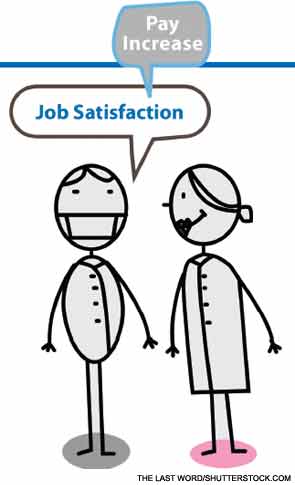
Two recent surveys show that rheumatologists are making more money than they did last year, and they’re among the least burned-out physicians. This is according to the 2013 Medscape Physician Lifestyle and Physician Compensation reports. Additional findings show that the pay gap between men’s and women’s salaries is less in rheumatology than other specialties, work setting affects earnings, and patient relationships contribute to job satisfaction.
Compensation
Rheumatologists earn an average income of $186,000, which places them squarely in the middle of the range of physician incomes reported in the compensation report. Historically, rheumatologists have ranked in the bottom third among the specialties, but they saw an increase in income over 2011.
There continues to be a pay gap between the genders in medicine—overall, men earn 30% more than women. In rheumatology, however, the gap is less (15.4%).
“I think it’s great our specialty closes that gap compared to other specialties,” said Marcy B. Bolster, MD, director of the Rheumatology Fellowship Training Program at Massachusetts General Hospital in Boston. “We have more women in rheumatology now … 65% of fellows in current rheumatology training programs are women. It would be fortuitous if we could close that gap even more.”
Of note, rheumatologists who work in hospitals saw the biggest jump in year-over-year salary, with mean incomes of $201,000 in 2012 versus $139,000 in 2011. The top earners in the specialty, earning $224,000, work in office-based multispecialty group practices compared with the lowest averages in academic settings ($137,000) and outpatient clinics ($138,000).
The Link Between Finances and Burnout
Not surprisingly, finances affect whether rheumatologists are experiencing symptoms of burnout, such as loss of enthusiasm for work, feelings of cynicism, and a low sense of personal accomplishment. When asked about savings and debt, only 54% of rheumatologists who feel burned out reported having adequate savings for their age group and professional stage as opposed to 70% of their more content peers.
Overall, rheumatologists rank low among physicians for burnout: 35.0% of rheumatologists compared with 39.8% of the survey group. The physicians who ranked highest for burnout, at 45.8%, work in emergency medicine.
Stressors and Rewards
The top stressors contributing to burnout for rheumatologists were “spending too many hours at work” and “too many bureaucratic tasks.”
The largest group of rheumatologists spend 30 to 40 hours per week seeing patients (38%), which is the same as 2011 and slightly less than 2010 (40%). This is similar to the 30% of all physicians surveyed.

